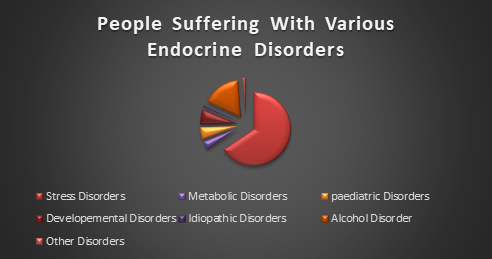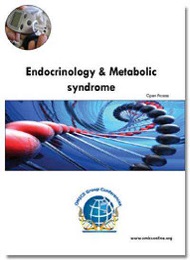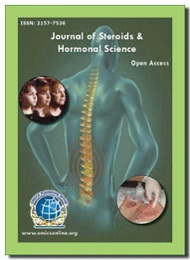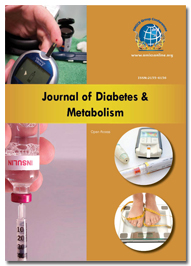Theme: Together Towards Tomorrow on Diabetes and Endocrine Disorders
Endocrine complications 2019
About Conference
Conference Series LLC LTD invites you to join us at the “World conference on Diabetes and Endocrine Complications 2019” where you will be assured to have a meaningful experience with scholars from around the world. The organizing committee looks forward to meeting you all at Barcelona, Spain on November 29-30, 2019.
Meet the Global Inspiring experts and speakers at our World conference on Diabetes and Endocrine Complications 2019 which will focus in bringing together individuals who have an interest in different fields of Endocrinology, Diabetes and Metabolic Disorders such as Endocrinologists, Diabetologists, Ophthalmologist, Medical Professors, Researchers, Diabetes and Endocrinology Scientists, Practitioners, Physical trainer or Exercise physiologist, Medical students.
Endocrine researchers are at the core of solving many of the most pressing health problems of our time, from diabetes and obesity to infertility, bone health, thyroid conditions, and hormone-related cancers. This conference is a unique platform for researchers and clinicians to present analysis regarding endocrine and diabetic disease management and complications, exchanging ideas about it and thus, contributes to the dissemination of knowledge in the society.
The two days conference will include workshops, symposiums, special keynote sessions conducted by eminent speakers within the sector of medical science related to endocrine and diabetic complications.
Conference Series Ltd Invites Diabetes and Endocrinology expertise, researchers, professors, scientific communities, therapists, counsellors, delegates, students, business professionals, and executives to attend World Conference on Diabetes and Endocrinology complications which is going to be held on November 29-30, 2019 in Barcelona, Spain. Conference Series Ltd organizes 1000+ Global events inclusive of 300+ Conferences every Year across the USA, Europe & Asia with support from 1000 more scientific societies and Publishes 500+ Open access journals which contain over 50000 eminent personalities, reputed scientists as editorial board members.
Why attend???
Medical doctors, patients, and health care providers consider the prevention of Endocrinology and metabolic disorders as an essential tool to improve the general health status of the population. The proportions of people suffering from the Endocrinology and metabolic disorders are expected to increase in the future according to a recent statistical survey. Realizing this imperative, Conference Series Ltd is set to organize International Conference Diabetes and Endocrine Complications for the upcoming year with a view to enhance research and promote awareness aiming in developing solutions for the challenges encountered.
Benefits of Attending:
- Exchange ideas and network with leading, endocrinologists, diabetes researchers, clinician’s researchers, diabetes and endocrinology professionals and researchers from more than 40 countries.
- Discuss quality initiatives that can be applied in the practice.
- Discuss ways to collaborate in putting quality initiatives in place throughout the Endocrinology and Diabetes study and endocrinology and diabetes disorders and treatment.
- Participants can gain direct access to a core audience of professionals and decision-makers and can increase visibility through branding and networking at the conference.
- Learn and discuss key news and challenges with senior level speakers.
- With presentations, panel discussions, roundtable discussions, and workshops, we cover every topic from top to bottom, from global macro issues to strategies to tactical issues.
Target Audience:
This activity is designed for:
- Diabetes Health Professionals
- Endocrine Professionals
- Primary care providers
- Endocrinologists
- Diabetologists
- Gynaecologist
- Neurologists
- Ophthalmologists
- Oncologists
- Nutritionists/Dieticians
- Academic researchers
- Research Institutes
- Endocrinology, Diabetes & Metabolism students, Scientists
- Endocrinology, Diabetes & Metabolism Researchers
- Endocrinology, Diabetes & Metabolism Faculty
- Endocrinology, Diabetes & Metabolism Associations and Societies
- Family practice,
- Internal medicine,
- Nurse practitioners,
- Physician assistants,
- Registered nurses,
- Diabetes educators, dieticians,
- Pharmacists who provide interdisciplinary care.
- Business Entrepreneurs
- Training Institutes
- Pharma Companies
- Manufacturing Medical Devices Companies
Track 1: Diabetes
Diabetes describes a group of metabolic diseases characterized by high blood sugar levels. Diabetes can be caused by the pancreas not producing insulin (type 1 diabetes) or by insulin resistance (cells do not respond to insulin; type 2 diabetes).
Diabetes insipidus Patients with diabetes insipidus have excessive thirst and excrete large amounts of extremely diluted urine. Diabetes insipidus is generally a result of either a lack of antidiuretic hormone or insensitivity to antidiuretic hormone causing kidney or nephron dysfunction.
Type 1 diabetes (also known as diabetes mellitus) is an autoimmune disease in which immune cells attack and destroy the insulin-producing cells of the pancreas. The loss of insulin leads to the inability to regulate blood sugar levels. Patients are usually treated by insulin-replacement therapy.
Type 2 diabetes mellitus, the most frequent subtype of diabetes, is a disease characterized by high levels of blood glucose (hyperglycaemia). It arises from a resistance to and relative deficiency of the pancreatic β-cell hormone insulin.
- Diabetes
- Type 1 diabetes
- Type 2 diabetes
- Diabetes insipidus
Track 2: Risk Factors and Related Diseases of Diabetes
High levels of sugars or glucose in the blood lead to such a chronic condition called diabetes mellitus. High aldohexose in blood could cause eye injury, excretory organ injury, and nerve injury. Diabetes increases the risk of various cardiovascular diseases such as coronary artery disease, heart attack, heart stroke and narrowing of arteries which reduces the blood flow through the arteries. High levels of glucose in the blood can damage blood vessels and nerves causing loss of sensation in sexual organs, which leads to sexual dysfunction. In addition to this, people with diabetes have more chances to develop infections that may lead to allergies. Diabetes is the main cause of cardiovascular diseases, kidney failure, and blindness. Diabetes can also cause foot ulcers and hearing problems, people with diabetes have hearing impairment commonly. Maintaining blood glucose levels, blood pressure, diabetic gastro paresis which has been reported to have the main cause as Diabetes Mellitus and cholesterol at or close to normal can help delay or prevent diabetes complications.
- Diabetic Retinopathy
- Prediabetes
- Increased thirst
- Frequent urination
- Extreme hunger
- Unexplained weight loss
Track 3: Diabetes Complications
Long-term complications of diabetes develop gradually. Diabetes complications may be disabling or even life-threatening.
- Cardiovascular disease. Diabetes dramatically will increase the chance of assorted vessel issues, as well as artery illness with hurting (angina), attack, stroke and narrowing of arteries (atherosclerosis). If you've got polygenic disease, you are a lot of seemingly to own cardiopathy or stroke.
- Nerve damage (neuropathy). Excess sugar will injure the walls of the little blood vessels (capillaries) that nourish your nerves, particularly in your legs. This can cause tingling, numbness, burning or pain that sometimes begins at the guidelines of the toes or fingers and bit by bit spreads upward.
Left untreated, you could lose all sense of feeling in the affected limbs. Damage to the nerves related to digestion can cause problems with nausea, vomiting, diarrhoea or constipation. For men, it may lead to erectile dysfunction.
- Kidney damage (nephropathy). The kidneys contain countless small vas clusters (glomeruli) that filter waste from your blood. Diabetes can damage this delicate filtering system. Severe harm will cause kidney disease or irreversible end-stage renal disorder, which can need qualitative analysis or a urinary organ transplant.
- Eye damage (retinopathy). Diabetes will harm the blood vessels of the tissue layer (diabetic retinopathy), doubtless resulting in visual disorder. Diabetes additionally will increase the danger of different serious vision conditions, like cataracts and eye disease.
- Foot damage. Nerve harm within the feet or poor blood flow to the feet will increase the danger of assorted foot complications. Left untreated, cuts and blisters will develop serious infections, which frequently heal poorly.These infections might ultimately need toe, foot or leg amputation.
- Skin conditions. Diabetes might leave you additional liable to skin issues, as well as microorganism and plant life infections.
- Hearing impairment. Hearing problems are more common in people with diabetes.
- Alzheimer's disease. Type 2 polygenic disease could increase the danger of insanity, like Alzheimer’s. The poorer your blood glucose management, the larger the danger seems to be. Although there area unit theories on however these disorders may well be connected, none has however been tried.
- Depression. Depression symptoms are common in people with type 1 and type 2 diabetes. Depression can affect diabetes management.
Track 4: Metabolic syndrome
Metabolic syndrome is a medical disorder that may lead to cardiovascular disease and diabetes. Metabolic syndrome is a Group of conditions increased blood pressure, a high blood sugar level, excess body fat around the waist and abnormal cholesterol levels that occur together, increasing your risk of heart disease, stroke, and diabetes. Also, a hormone disorder in which the female body produces too much of certain hormones. Genetic factors influence each individual component of the syndrome, and the syndrome itself. A family history that includes type 2 diabetes, hypertension, and early heart disease greatly increases the chance that an individual will develop metabolic syndrome. Most of the disorders associated with metabolic syndrome have no symptoms, although a large waist circumference is a visible sign and it alters sex hormone levels. If your blood sugar is very high, you might experience signs and symptoms of diabetes including increased thirst and urination, fatigue, and blurred vision.
Track 5: Endocrine System
The endocrine system is a network of glands that turn out and unleash hormones that facilitate management several necessary body functions, as well as the body's ability to alter calories into energy that powers cells and organs. The system influences, however, your heart beats, however, your bones and tissues grow, even your ability to create a baby. It plays an important role in whether or not or not you develop the polygenic disease, thyroid unwellness, growth disorders, sexual dysfunction, and a number of different hormone-related disorders. The system consists of a variety of various glands that secrete hormones that dictate however cells and organs behave. The hormones created by the system facilitate the body to manage growth, sexual operate, mood and metabolism. The system is liable for regulation several of the body's processes.
Track 6: Glands of endocrine system
Each gland of the endocrine system releases specific hormones into your bloodstream. These hormones travel through your blood to other cells and help control or coordinate many body processes.
The list below provides a selection of the roles of glands in the endocrine system:
- Pancreas – regulates blood glucose levels
- Adrenal gland – increases blood glucose levels and speeds up heart rate
- Thyroid gland - helps to regulate our metabolism
- Pituitary gland – stimulates growth
- Pineal gland – helps to regulate our sleep patterns
- Ovaries – promote development of female sex characteristics
- Testes – promote development of male sex characteristics
Track 7: Endocrine system and energy metabolism
Metabolism encompasses all the chemical reactions which enable the body to sustain life. Energy metabolism is one of these processes and is vital for life. The body is able to use fat, protein and carbohydrate to provide energy. The pancreas plays an important part in energy metabolism by secreting the hormones insulin and glucagon which respectively make glucose and fatty acids available for cells to use for energy.
Track 8: Endocrine Disorders
The endocrine system balances the hormones in the bloodstream. If your body has too much or too little of a certain hormone, the feedback system signals the proper gland or glands to correct the problem. A hormone imbalance may occur if this system has trouble keeping the right level of hormones in the bloodstream, or if your body doesn't clear them out of the bloodstream properly.
Endocrine disorders are typically categorised into two types:
Endocrine disease that results when a gland produces too much or too little of an endocrine hormone, called a hormone imbalance.
Endocrine disease due to the development of lesions (such as nodules or tumours) in the endocrine system, which may or may not affect hormone levels
Increased or decreased levels of endocrine hormone may be caused by
A problem with the endocrine feedback system
- Disease failure of a gland to stimulate another gland to release hormones (for example, a problem with the hypothalamus can disrupt hormone production in the pituitary gland)
- A genetic disorder, such as multiple endocrine neoplasia (MEN) or congenital hypothyroidism infection
- Injury to an endocrine gland
- Tumor of an endocrine gland
Track 9: Thyroid disorders
The thyroid gland is located in the front of the neck and produces thyroid hormone, which helps regulate the body’s metabolism. Problems with the thyroid gland include too much (hyperthyroidism) or too little (hypothyroidism) thyroid hormone, inflammation of the thyroid gland (thyroiditis), thyroid nodules (lumps in the thyroid gland), or thyroid cancer.
Hyperthyroidism refers to having too much thyroid hormone in the blood, which results in an increase in the body's metabolism.
Hypothyroidism refers to having too little thyroid hormone, which can result in a slowing of the body's metabolism.
Thyroiditis refers to inflammation of the thyroid gland. This can sometimes result in a temporary increase thyroid hormone in the blood (hyperthyroidism), but can also cause long-term destruction of the thyroid gland, eventually causing low thyroid hormone (hypothyroidism).
Track 10: Pituitary and Adrenal disorders
The pituitary is a tiny secreter (about the scale of a excretory organ bean) situated at the bottom of the brain, simply below the optic (eye) nerve in a very bony space called the sella turcica. It is created of the anterior (adenohypophysis) and posterior (neurohypophysis) endocrine. It is usually referred to as the “master gland” as a result of it produces variety of endocrines that regulate different hormone glands within the body.
Cushing's disease is a rare condition caused by associate degree overrun of the adrenal internal secretion Cortef. The most common form of Cushing's disease is due to an excess secretion of the pituitary hormone, ACTH (adrenocorticotropic hormone), which circulates in the blood and stimulates the adrenal gland.
The adrenal glands are located just above the kidneys and produce three major hormones, two of which originate in the outer adrenal cortex (cortisol and aldosterone) and the other from the inner adrenal medulla (epinephrine):
Cortisol, an important hormone for the regulation of glucose and protein metabolism, as well as blood pressure and the immune system.
Aldosterone, a hormone involved in blood pressure, sodium and potassium balance.
Epinephrine (adrenalin), a major hormone of the sympathetic nervous system and the “fight-or-flight” response.
Adrenal insufficiency involves reduced hormone secretion from the adrenal gland, resulting in a deficiency of all adrenal hormones, including cortisol and aldosterone.
Track 11: Reproductive hormone disorders
Reproductive hormone disorders can affect fertility and may have long-term effects on metabolic, cardiovascular and bone health. The reproductive hormones include estrogen and progesterone in women and testosterone in men.
Ovarian insufficiency (sometimes called premature menopause) occurs when the ovaries either do not develop or are damaged and no longer function normally. Ovaries can be surgically removed, or damaged by the immune system, or from chemotherapy, or radiation treatments for certain types of cancer.
Polycystic ovary syndrome (PCOS) is a metabolic condition that happens in some women of generative age. Symptoms will embrace irregular expelling periods, loss of fertility, magnified hair growth on the face, chest, or abdomen, acne, and an inclination toward weight gain and hypoglycaemic agent resistance (diabetes).
Testosterone, the male internal secretion (produced within the testes), has a crucial role in maintaining fertility, energy, strength and metabolism. Men with low androgen will have symptoms of low energy and mood likewise as reduced strength and sexual desire (sex drive). In the future, they're conjointly in danger for low bone density (osteoporosis). The causes of low androgen are often sex gland trauma, radiation or therapy sure enough kinds of cancer, infection or loss of blood offer to the testes.
Track 12: Endocrine ssystem and diabetes
Diabetes affects how the body regulates blood glucose levels. Insulin helps to reduce levels of blood glucose whereas glucagon's role is to increase blood glucose levels. In people without diabetes, insulin and glucagon work together to keep blood glucose levels balanced.
In diabetes, the body either doesn't produce enough insulin or doesn't respond properly to insulin causing an imbalance between the effects of insulin and glucagon.
In type 1 diabetes, the body isn't able to produce enough insulin and so blood glucose becomes too high unless insulin is injected.
In type 2 diabetes, the body is unable to respond effectively to insulin, which can also result in higher than normal blood glucose levels. Medications for type 2diabetes include those which help to increase insulin sensitivity, those which stimulate the pancreas to release more insulin and other medications which inhibit the release of glucagon.
Track 13: Paediatric Endocrinology
Hormones play a major role in driving a child’s growth and development. Problems with growth, puberty, and sexual development often have their roots in the endocrine system. Endocrinology also deals with hypoglycaemia and other forms of hyperglycaemia in childhood, variations of puberty, as well other adrenal, thyroid, and pituitary problems. Many paediatric endocrinologists have interests and expertise in bone metabolism, lipid metabolism, adolescent gynecology, or inborn errors of metabolism.
Track 14: Obesity and metabolic disorders
There are presently over one.9 billion people who are weighty or overweight, resulting in an increase in connected health complications, as well as internal secretion resistance, kind a pair of polygenic disease, upset, disease, cancer, and neurodegeneration. The finding that fat and disorder are amid chronic inferior inflammation has essentially modified our read of the underlying causes and progression of fleshiness and metabolic syndrome. We currently apprehend that associate inflammatory program is activated early in fat growth and through chronic fat, for good skewing the system to a pro-inflammatory constitution, and we are beginning to delineate the reciprocal influence of obesity and inflammation. Reviews during this series examine the activation of the innate and adjustive system in obesity; inflammation at intervals diabetic islets, brain, liver, gut, and muscle; the role of inflammation in pathology and angiogenesis; the factors that contribute to the initiation of inflammation; and therapeutic approaches to modulate inflammation within the context of fleshiness and metabolic syndrome.
Track 15: Diabetic & Endocrine Diagnostic Tools and Tests
- Adrenal Venous Sampling for Aldosterone, Androgen Levels, Angiography, Arginine Stimulation Test, Arterial Stimulation with Venous Sampling, Autonomic Function Tests
- Basal Acid Output (BAO), Bilateral Simultaneous Inferior Petrosal Sinus Sampling (IPSS) with CRF, Bone Marrow Aspirate
- C-peptide Suppression Test, Calcium Infusion Test for Medullary Cancer of the Thyroid, Captopril Test, Clomiphene Test, Clonidine Suppression Test, Combined Pituitary Function Tests (CPT), Cortisol Day Curve, CRH Test
- Glycated hemoglobin (A1C) test, Exercise Test, Fasting Test, Fine Needle Aspiration of a Thyroid Nodule (FNA), Finger Size Assessment, Gastric Acid Secretion, Glucagon Test, Glucose Tolerance Test, Gonadotropin Releasing Hormone GnRH/LHRH Test
- High Dose Dexamethasone Suppression Test, Hydrocortisone Day Curve (HCDC), Hydroxycorticosterone (18-OHB) and - cortisol (18-OHF) Tests, Hyperaldosteronism Investigations, Hyperparathyroidism Investigations
- Insulin Tolerance Test, Insulin: Glucagon Ratio, Intravenous Secretin Test, Investigating Systemic Mastocytosis, Ischemic Lactate Test
- Long Synacthen Test, Low Dose Dexamethasone Suppression Test, Measuring Skin-fold Thickness, MIBG Scan
- Octreoscan, Operative Management of Pituitary Tumours, Oral Glucose Tolerance Test for Acromegaly, Overnight Dexamethasone Suppression Test
- Pentagastrin Test for Medullary Cancer of the Thyroid, Pentolinium Suppression Test, Percutaneous Trans-hepatic Portal Venous Sampling, Peripheral Venous Sampling for Ectopic Sources of ACTH, Petrosal Sinus Sampling, Post-Operative Investigation of Thyroid Carcinoma, Posture Studies, Pro-insulin and C-peptide, Prolonged Supervised Fast
- Radioactive Iodine Test, Screening for Ovulation, Selective Arterial Injection for the Localization of Gastrinomas and Insulinomas, Selenium Cholesterol Scanning for Conn's Tumours
- Short Synacthen Test, Somatostatin Receptor Scintigraphy
- Technetium Scan, Therapeutic Trial of ddAVP, Thyrotrophin Releasing Hormone (TRH) Test, Tolbutamide Test, Ultrasound, Visual Field Testing (Goldmann perimetry), Water Deprivation Test.
Summary of Endocrine Complications 2019
Endocrine Complications 2019 provides a worldwide stage to worldwide systems administration and trading most recent developments in diabetes and endocrinology. Endocrine Complications 2019 is a stage which unites people who have an enthusiasm for various fields of Endocrinology and Diabetic Disorders like Adrenal Disorders, Pituitary Disorders, Diabetes, and Related Confusions, Diseases, and Disorders of the Thyroid, Thyroid Nodules, and Tumor, Gynecomastia, Lipid Disorders, Osteoporosis, Parathyroid, and Calcium Disorders
Endocrinology and Diabetes conference investigates new practices and gives data on the various endocrine issue, hormones, diabetes, paediatric, juvenile and renal malady, neuropathy, thyroid issues, bariatric pharmaceutical, demonstrated practices ask for modifies in the edification of the learner, more practice-significant research, and closer working connections among clinicians and analysts. A confirmation-based practice additionally gives chances to endocrinologists to be more broke down, more strong, efficient, and lively, and to overstate the impacts of the clinical judgment

Conference Series LLC successfully hosted its premiere 11th World Congress on Endocrinology and Metabolic Disorders scheduled to be held during September 3-4, 2018 in Auckland, New Zealand. The conference was organized with a focus on “Exploring Novel Aspects in Endocrinology and Metabolic Disorders” and it was a great success where eminent keynote speakers from various reputed organizations made their resplendent presence and addressed the gathering.
Endocrinology Congress 2018 was marked by the attendance of Editorial Board Members of main Journals is the Journal of Endocrinology & Metabolic Syndrome. Many Scientists, young and brilliant Researchers, Business Delegates and talented Student Communities representing from varies countries made this conference fruitful and productive driving the two-day event into the path of success with thought-provoking keynote and plenary presentations.
The 11th World Congress on Endocrinology and Metabolic Disorders covered the following scientific sessions and discussions:
Endocrinology and Metabolism
Metabolic Syndrome
Endocrinology and Diabetes
Adrenal gland and Thyroid gland
Neuroendocrinology and Pituitary Disorders
Reproductive Endocrinology and Infertility
Endocrinology and Dermatology
Endocrinology and Pediatric Care
Endocrine Nursing and Health Care
Endocrine Disorders
Advancements in Treatment and Prevention
Clinical Research and Case Study
Endocrine Prevention
Types of Metabolic Disorders
Pediatrics Metabolic Disorders
Metabolic Responses and Nutrition
Obesity, Diabetes, and Metabolism
Hormones and Metabolic Syndromes
Energy & Exercise Metabolism
Diet and Weight Management
The response to Endocrinology Congress 2018 was huge attendees from different corners of the world. The conference was initiated with a series of invited lectures delivered by both Honorable Guests and members of the Keynote forum.
-
Joseph Fomusi Ndisang,
University of Saskatchewan College of Medicine, Canada.
-
Christo John Frederick Muller
Biomedical Research and Innovation Platform, South Africa.
-
Sermin Kesebir,
NPIstanbul Brain Hospital, Turkey.
All the above-mentioned Honorable Guests and Keynote speakers gave their energetic and fruitful contributions at Endocrinology Congress 2018.
All accepted abstracts have been indexed in OMICS Group Journal of Endocrinology & Metabolic Syndrome as a special issue.
We are also obliged to various outside experts, company representatives and other eminent personalities who supported the conference by facilitating the discussion forums. Our sincere thanks to Organizing Committee Members for their gracious presence, support, and assistance towards Endocrinology Congress 2018.
Conference Highlights
- Diabetes
- Risk Factors and Related Diseases of Diabetes
- Diabetes Complications
- Metabolic syndrome
- Endocrine System
- Glands of the Endocrine System
- Endocrine system and energy metabolism
- Endocrine Disorders
- Thyroid disorders
- Pituitary and Adrenal disorders
- Reproductive hormone disorders
- Endocrine system and diabetes
- Paediatric Endocrinology
- Obesity and metabolic disorders
- Diabetic & Endocrine Diagnostic Tools and Tests
To share your views and research, please click here to register for the Conference.
To Collaborate Scientific Professionals around the World
| Conference Date | November 29-30, 2019 | ||
| Sponsors & Exhibitors |
|
||
| Speaker Opportunity Closed | |||
| Poster Opportunity Closed | Click Here to View | ||
Useful Links
Special Issues
All accepted abstracts will be published in respective Our International Journals.
Abstracts will be provided with Digital Object Identifier by



